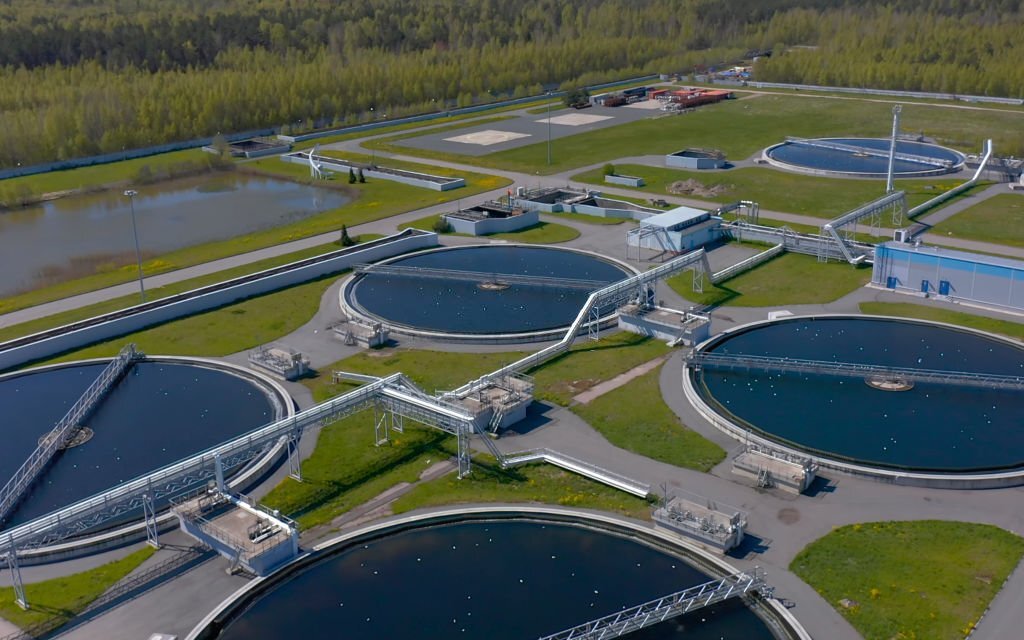The discussion around Environment, Sustainability and Governance; environmental conservation, and responsible water management have been happening for ages. However, these deliberations have caught momentum since the recent COP27 when leaders from across the globe spoke about threats to the environment and suggested sustainable measures, especially in terms of water management. While commercial and residential sewage treatment plants are used extensively across the world, there is need for more awareness and adoption of environment friendly practices.
Water treatment is one of the key actions that the community can take up together and make significant contributions towards addressing the impending water crisis that is looming large on our planet. So, if you are keen to know what water treatment is and how wastewater treatment plants can make a difference, read on. Here we bring you everything that you need to know about water treatment and how the state of Gujarat in India has set an example for the world to follow.

What is Water Treatment?
Wastewater is formed when water is affected by commercial, industrial and domestic uses. For example, runoff water from rain, and water from bathrooms and toilets, can be categorised under wastewater. This wastewater, if not treated, can cause pollution in natural water bodies and result in diseases that can afflict the human population.
In order to safeguard the community, this wastewater is treated in water treatment plants, where harmful chemicals are removed, and the water is rendered eligible for reuse. Treated water is of significant importance in a country such as India as it is used in irrigation.
Many cities in the country too have sewer systems that gather wastewater, which is then passed through sewage treatment plants in India for cleaning and purification.
The state of Gujarat, which has set a global precedence in its governance practices, has demonstrated a successful working model in terms of wastewater management. If you are keen to know about the applicability of water treatment, read on.
Lessons from Gujarat
The Indian state of Gujarat has set an example worth emulating worldwide, when it comes to wastewater management. In 2018, the state introduced the ‘Reuse of Treated Waste Water’ policy, which not only aims to promote resuse of wastewater but also reduces the dependability of the state on the River Narmada.
In order to achieve this, the government has taken up the responsibility of setting up commercial and residential sewage treatment plants, which will generate enough treated water for non-drinking purposes – such as use in industrial units, gardening, construction and thermal power plants.
Gujarat has a thriving industrial sector and the generation of treated water in large volumes can prove extremely helpful. Not only does it help the industrial sector function optimally but also sustainably.
Besides its commitment to generate reusable water, Gujarat is also committed to the Zero Liquid Discharge agenda to protect its natural water resources from pollution and contamination. The brilliant planning and execution undertaken by the state have won it international acclaim.
Advantages of Water Treatment
Why is water treatment so important? Here are the answers:
Reduces Water Pollution
Effluents that are discharged into rivers and lakes from industrial areas are a major concern that not only poses threat to freshwater and marine ecosystems, but are equally threatening to the well-being of the human population. Water treatment using wastewater treatment plants can prevent water pollution in a big way and ensure safety of human life and the environment.
Prevents Wastage of Water
Water treatment promoted reuse of water for non-drinking purposes. Once wastewater is treated, it can be circulated back for industrial, commercial and irrigation purposes. Besides waste water generated by industries, water collected from domestic discharges can also be treated using residential sewage treatment plants and used for non-drinking purposes. By promoting water treatment, we can prevent the impending water crisis the world is about to experience.
Water is Restored into the Environment
With the ground water level dropping precariously, environmentalists have voiced their concerns for ages. However, with the reuse of water, this concern can be addressed. By using treated water, the environment sees a recycle and water is reintroduced in the system.
Desalination Makes More Water Available
Desalination is a process that removes salinity from water and frees up more water for human consumption. By using desalination plants, we can address the issue of water scarcity.
If you are looking for a reliable residential sewage treatment plant, check out the range of products by Cleantech Water– the most trusted name for sewage treatment plants in India.
Reach Out for High Quality Sewage Treatment Plants in India
Cleantech Water specializes in residential sewage treatment plants, SBR Based sewage treatment plants, MBBR based sewage treatment plants, grey water treatment plants, effluent treatment plants, etc. We not only supply but also install components of sewage treatment plant with the ideal quality for different STPs. To know more about our services, connect with us either at info@cleantechwater.co.in or call us at +91-9099915539 / +91-7935660299.

